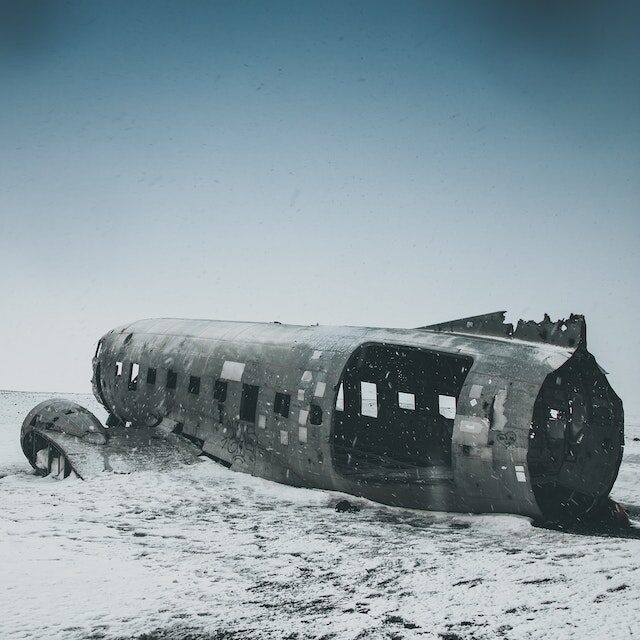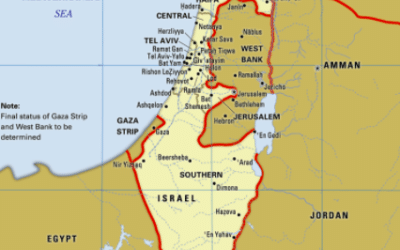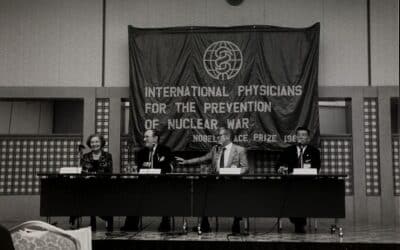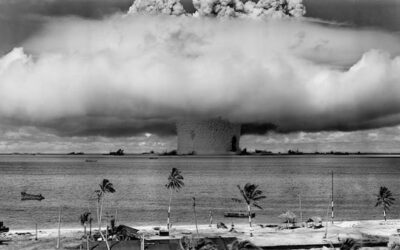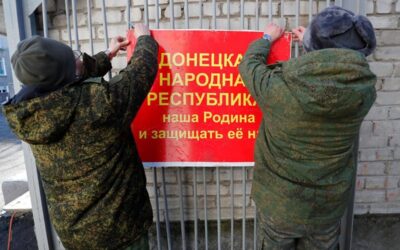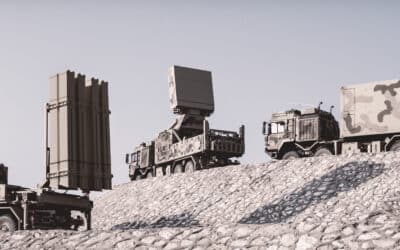What to Do in Case of a Nuclear Attack
Nuclear attacks can be terrifying to think about, but being informed is the best defense. This guide will provide clear steps on what to do in case of a nuclear attack. You’ll learn about the immediate actions to take, how to find and create safe shelter, and the ways to stay safe in the aftermath. Knowledge is power, and with this guide, you’ll be prepared for the unexpected.
Understanding Nuclear Attacks
Nuclear attacks are a terrifying possibility that we hope will never occur, but it’s crucial to be informed and prepared just in case. In this section, we will delve into the various aspects of nuclear attacks, including what they entail, the different types of attacks, and potential targets.
What is a Nuclear Attack?
A nuclear attack involves the use of nuclear weapons, which are incredibly destructive and have the potential to cause widespread devastation. These weapons rely on nuclear reactions to release an immense amount of energy in the form of an explosion. The impact of a nuclear attack can be catastrophic, causing massive loss of life, infrastructure destruction, and long-term environmental damage.
Types of Nuclear Attacks
There are two main types of nuclear attacks: strategic attacks and tactical attacks.
- Strategic Attacks: These are large-scale attacks aimed at crippling an enemy nation’s infrastructure, military capabilities, and population centers. Strategic attacks typically involve the use of intercontinental ballistic missiles (ICBMs) or submarine-launched ballistic missiles (SLBMs). These missiles can travel great distances and carry multiple nuclear warheads, capable of hitting several targets simultaneously.
- Tactical Attacks: Tactical nuclear attacks are smaller in scale and primarily target military forces, installations, or specific geographic locations. These attacks are often carried out using shorter-range missiles or aircraft-delivered bombs. Tactical nuclear weapons are designed to be more battlefield-oriented rather than targeting entire cities or regions.
Potential Targets for Nuclear Attacks
In the event of a nuclear attack, certain locations may be more likely to be targeted due to their strategic importance. While it’s impossible to predict with certainty, potential targets for nuclear attacks could include:
- Major Cities: Urban centers with high population density, economic significance, or political importance may be attractive targets.
- Military Installations: Bases, command centers, and military infrastructure are potential targets as they can significantly impact an enemy’s defense capabilities.
- Industrial Complexes: Key industrial facilities such as power plants, factories, and transportation hubs could be targeted to disrupt a nation’s economy and infrastructure.
- Political Centers: Government buildings, official residences, or centers of political power may be targeted to destabilize a nation’s leadership.
It’s important to note that the selection of targets in a nuclear attack would depend on the attacker’s objectives and military strategy. While this list highlights potential targets, the actual targets would vary based on the specific circumstances and goals of the attacking nation.
In conclusion, understanding nuclear attacks is crucial in order to comprehend the gravity of the situation and take the necessary precautions. Being aware of the different types of attacks and potential targets can help us better prepare for such a catastrophic event. In the next sections, we will explore in more detail the steps to take in case of a nuclear attack, as well as preventive measures to minimize the impact. Stay informed, and stay safe!
Preparing for a Nuclear Attack
In this section, I will discuss the crucial steps you need to take in order to prepare yourself and your family for a potential nuclear attack. By creating an emergency plan, building an emergency kit, and establishing a communication plan, you can increase your chances of staying safe and informed during such a catastrophic event.
Create an Emergency Plan
Having a well-thought-out emergency plan is essential in times of crisis. Here are some key points to consider when creating your plan:
- Identify safe areas: Determine the safest areas in your home where you can seek shelter in the event of a nuclear attack. Look for rooms located away from windows and with few external walls.
- Designate a meeting place: Choose a meeting place outside your home where you and your family can gather if you are separated during the attack. Make sure everyone is aware of this location and how to get there.
- Establish emergency contacts: Compile a list of emergency contacts, including family members, close friends, and local authorities. Keep this list readily accessible, and make sure everyone in your household knows where to find it.
- Plan escape routes: Identify the best escape routes from your home and practice them regularly with your family. Ensure everyone knows how to evacuate safely if the need arises.
Build an Emergency Kit
Having a well-stocked emergency kit is vital for surviving any kind of disaster, including a nuclear attack. Here are some essential items to include in your kit:
- Non-perishable food: Store a supply of non-perishable food items, such as canned goods and energy bars, that can sustain you and your family for at least a few days.
- Water: Keep an ample supply of drinking water, aiming for at least one gallon per person per day for a minimum of three days.
- First aid kit: Assemble a comprehensive first aid kit that includes bandages, antiseptic wipes, medications, and any necessary prescription drugs.
- Flashlights and batteries: Pack several flashlights with extra batteries to ensure you have a reliable source of light during power outages.
- Emergency radio: Include a battery-powered or hand-cranked emergency radio in your kit. This will enable you to stay informed about the situation and receive updates from authorities.
- Personal hygiene items: Don’t forget to include items such as toothbrushes, toothpaste, toilet paper, and hand sanitizer.
Establish a Communication Plan
During a nuclear attack, communication can become challenging. It is crucial to establish a communication plan with your loved ones in advance. Consider the following points when creating your plan:
- Designate a primary contact: Choose a family member or friend who lives outside the affected area to act as a primary contact person. This individual will serve as a central point for communication and relay messages between you and other family members.
- Exchange contact information: Share contact numbers with all family members and ensure everyone has the primary contact’s number memorized or stored in their mobile phones.
- Agree on communication methods: Discuss alternative communication methods, such as texting or social media, as they may be more reliable than voice calls during a crisis. Agree on specific platforms to use.
- Establish check-in times: Plan regular check-in times with your loved ones to provide updates on your safety and whereabouts. This will help alleviate anxiety and ensure everyone’s well-being.
Remember, while we hope a nuclear attack never occurs, being prepared can make a significant difference in your ability to cope with such a catastrophic event. By creating an emergency plan, building an emergency kit, and establishing a communication plan, you will be better equipped to protect yourself and your loved ones. Stay tuned for the next sections of this article, where we will cover additional crucial steps to take in case of a nuclear attack.
Reacting During a Nuclear Attack
In the event of a nuclear attack, it is crucial to react swiftly and calmly to ensure your safety. Seeking shelter immediately and taking necessary precautions can greatly increase your chances of survival. In this section, we will explore the steps you should take to protect yourself during a nuclear attack.
Seek Shelter Immediately
When you receive an alert or hear warning sirens indicating a nuclear attack, your first priority should be to find shelter as quickly as possible. Look for a sturdy building or a basement that can provide you with adequate protection. If you are unable to find a suitable structure nearby, consider seeking refuge in a subway station or an underground parking garage.
Stay Indoors
Once you have found a shelter, it is essential to stay indoors until it is safe to go outside. The walls of buildings can shield you from the harmful effects of radiation. Avoid going outdoors, as exposure to radioactive fallout can have severe consequences for your health.
Close Windows and Seal Doors
To minimize the infiltration of radioactive particles into your shelter, promptly close all windows and seal any gaps around doors and windows with duct tape or towels. These simple measures can serve as an additional barrier against radiation, ensuring a safer environment for you and others inside.
Turn Off Ventilation Systems
Turning off ventilation systems within your shelter is another crucial step to prevent the circulation of radioactive particles. Shutting down these systems will minimize the entry of external air, reducing the risk of contamination. Remember to close any vents or openings connected to the outside as well.
By following these steps – seeking shelter immediately, staying indoors, closing windows and sealing doors, and turning off ventilation systems –you can significantly increase your chances of survival during a nuclear attack. Remember, preparation and quick action are key in such situations. Stay tuned for more information on how to stay safe during a nuclear attack.
Stay safe!
*Note: This article provides general guidance and should not be considered a substitute for professional advice.
After a Nuclear Attack
Following a nuclear attack, it is imperative to take immediate action to ensure your safety and the safety of those around you. In this section, we will discuss three crucial steps to take after a nuclear attack: listening to authorities for updates, evaluating the safety of your surroundings, and following decontamination procedures.
Listen to Authorities for Updates
After a nuclear attack, it is essential to stay informed about the situation and any instructions from authorities. Tune in to emergency broadcast systems, local news channels, or official government websites for accurate and timely updates. Authorities will provide vital information regarding evacuation procedures, shelter locations, and other necessary precautions. By staying informed, you can make informed decisions that will help protect yourself and your loved ones.
Evaluate the Safety of Your Surroundings
Once you have gathered information from authorities, it is crucial to assess the safety of your immediate surroundings. Look for signs of damage, such as collapsed buildings, fires, or hazardous materials. If you are indoors, check for any structural damage, such as cracks in walls or ceilings, and ensure that the building is stable before moving around. If you notice any immediate dangers, evacuate the area immediately and seek shelter in a safer location.
Follow Decontamination Procedures
In the aftermath of a nuclear attack, radioactive materials may pose a significant threat to your health. It is essential to follow decontamination procedures to minimize exposure and prevent further contamination. Here are some steps to consider:
- Remove contaminated clothing: If your clothing has been exposed to radioactive materials, remove them immediately. Place them in a sealed plastic bag to prevent further contamination.
- Shower thoroughly: Take a shower using soap and water to wash off any radioactive particles that may be on your body. Pay special attention to your hair and scalp, as radioactive materials can easily accumulate there.
- Protect wounds and open sores: If you have any cuts or open sores, clean them thoroughly and cover them with sterile bandages to prevent contamination.
- Dispose of waste properly: Dispose of contaminated items, such as clothing and materials used for decontamination, in designated containers. Follow local guidelines for proper disposal of radioactive waste.
Remember, these decontamination procedures are general guidelines and may vary depending on the specific situation. Always follow instructions from authorities and seek medical attention if necessary.
By listening to authorities for updates, evaluating the safety of your surroundings, and following decontamination procedures, you can increase your chances of staying safe after a nuclear attack.
Conclusion
In conclusion, while the thought of a nuclear attack may be terrifying, it is essential to be prepared and informed on what to do in such a situation. Remember to stay calm and follow the guidance provided by local authorities and emergency management agencies. Take immediate action to seek shelter in a designated fallout shelter or a sturdy building with minimal windows and doors. Stay tuned to the radio or official channels for updates and instructions. Have a well-stocked emergency kit with essential supplies and medications. Keep important documents and emergency contact information easily accessible. Lastly, educate yourself and your loved ones on nuclear attack preparedness and evacuation plans. By taking these precautions, we can increase our chances of staying safe and minimizing the impact of a nuclear attack. Stay vigilant, stay prepared, and prioritize your safety above all else.
Stay calm, follow instructions, and prioritize safety in the event of a nuclear attack.
Related Articles
10 Best Handguns for Self-Defense
When it comes to...
The Truth About Sanctions: Why Don’t They “Work”?
In 2022,...
History of Israel-Palestine Conflict
Israel and...
After the WAR initiated by HAMAS on October 7th, the Middle East will not be the same
On the -th of...
The Israeli army is prepared for an offensive on the Gaza Strip, involving attacks from “air, sea, and land.”
The IDF (Israel...
War in Israel: Current Developments – Video
Rafah...
Russia vs USA: Who Would Win in a Potential War?
In the...
NATO vs China: Who Would Win in a Potential War?
In the realm of...
11 Best Assault Rifles in the World
Welcome to a world...
Yevgeny Prigozhin (Wagner founder) is dead
According...
What You Need to Know About Joining NATO
Has any country...
Terrifying Realities of a Potential Nuclear War
The Devastating...
11 Strongest and Most Powerful Navies in the World
When it comes to...
The Most Powerful Nuclear Weapons
The sheer power...
Understanding the Nature of War – The Clash of Wills
War is the...
Ukrainian Defense Forces Celebrate One-Year Anniversary of Kherson Region Liberation
Around one year...
Prigozhin First Video Speech After Unsuccessful Uprising
Following a recent...
11 Best Sniper Rifles in the World
Important Factors...
What is Russia saying about the war in Ukraine, Episode 1
Did you ever...
13 Most Powerful Weapons in the World
Weapons of immense...
What is Happening in Russia, Episode 3
Welcome to the...
What is Happening in Russia, Episode 2
Have you ever...
10 Strongest Tanks in the World
Tanks represent...
10 Strongest Armies in the World
When it comes to...
Putin: We cannot stop the fire when they advance on us!
Putin ten...
10 Best Air Defence Systems in the World
Image:...
Alexei Navalny Letters From Prison
Image:...
Ukraine’s Struggle for Survival and Western Dependency
Ukraine has long...
What is Happening in Russia, Episode 1
Have you ever...
10 Strongest Fighter Jets in the World
Image:...
10 Strongest NATO Members
Image:...
Mobilized Soldiers Expose Dire Conditions and Neglect in Deployment to Luhansk
source:...
Why is everything so poor and sad in Russia?
Image:...
Tensions Escalate in Northern Kosovo as Serbian President Mobilizes Army
Image:...
Putin’s Russia and the Need for a Fresh Security Approach in Europe
Image:...
DeSantis Declares Presidential Bid with Elon Musk
Image:...
Russian military personnel shelled the Zaporizhia Nuclear Power Plant
Image:...
Prigozhin Revelations The Truth Behind the Capture of Bakhmut
Image:...
President Zelensky Visit G7 Turning Point in Russia-Ukraine War
Image:...
Turning a Blind Eye No More: Zelensky’s Bold Stand Against Crimean Annexation
Unfortunately,...
Navigating the Fluidity of War and Geography: Insights and Strategies
War is Geography:...
Latest Updates on Russian Invaders’ Activities in Occupied Territories
Russian Invaders...
US Denies Ukrainian Pilots Training on F-16 Fighter Jets
Complexities of...
West Strong Support for Ukraine’s Recovery and Containment of Russia
Kremlin's Failed...
Ukraine Supreme Court Chairman Confronts Allegations of Blatant Bribery
Vsevolod Knyazev...
Gold Coin Treasure from Alexander the Great Era found in Annexed Crimea
Crimea's Hidden...
Rishi Sunak Hails Zelenskyy as a Modern-Day Churchill
Volodymyr...
The Moral Factor in War: Ukraine’s Key to Victory
"We were actively...
The West’s Triumph in the New Cold War: Technology of Freedom Wins Out
The Chinese leader...
The Illusion of Power: How Putin’s Russia is Making the Same Mistakes as its Past Leaders
Modern Russia and...
